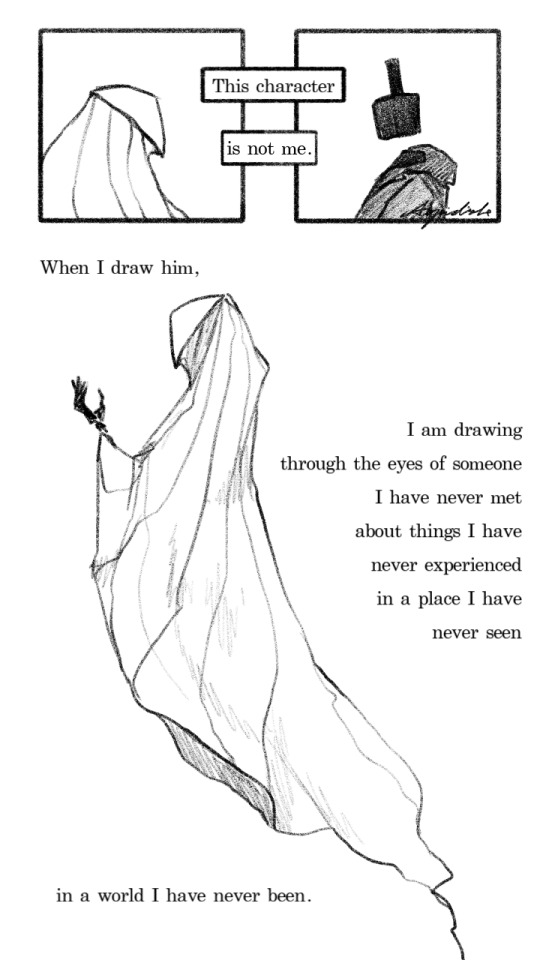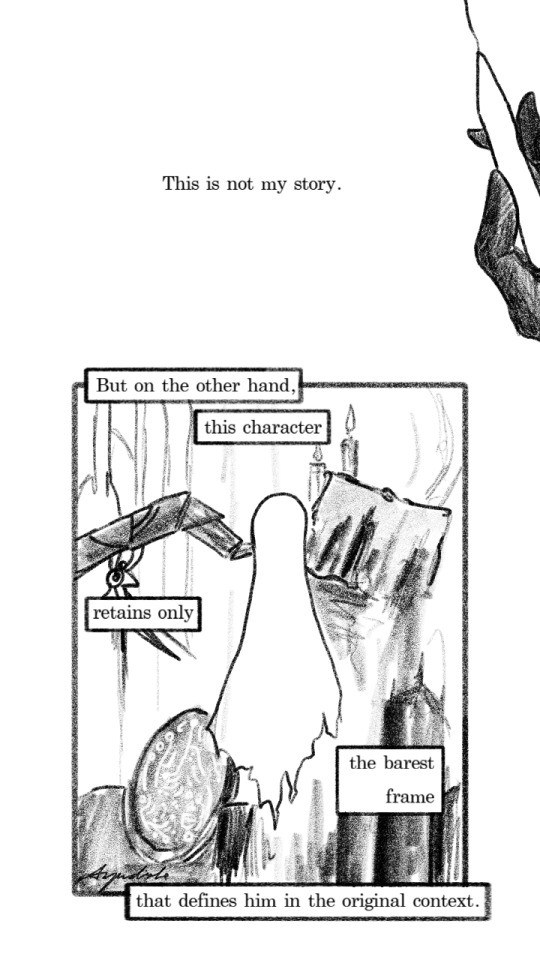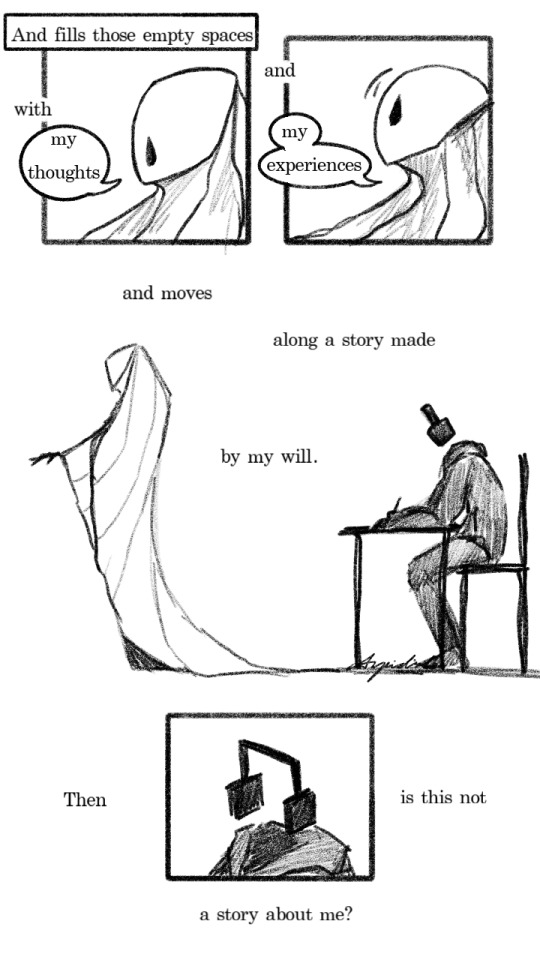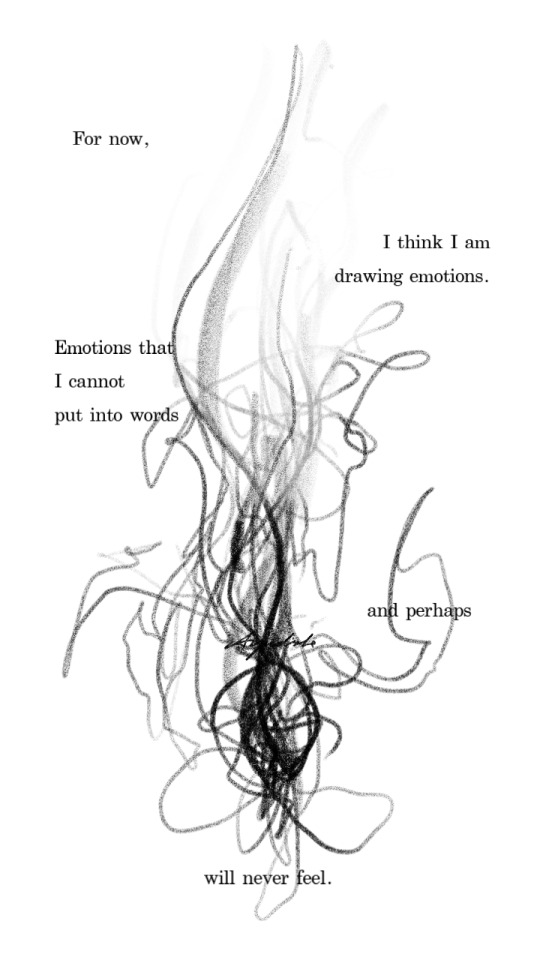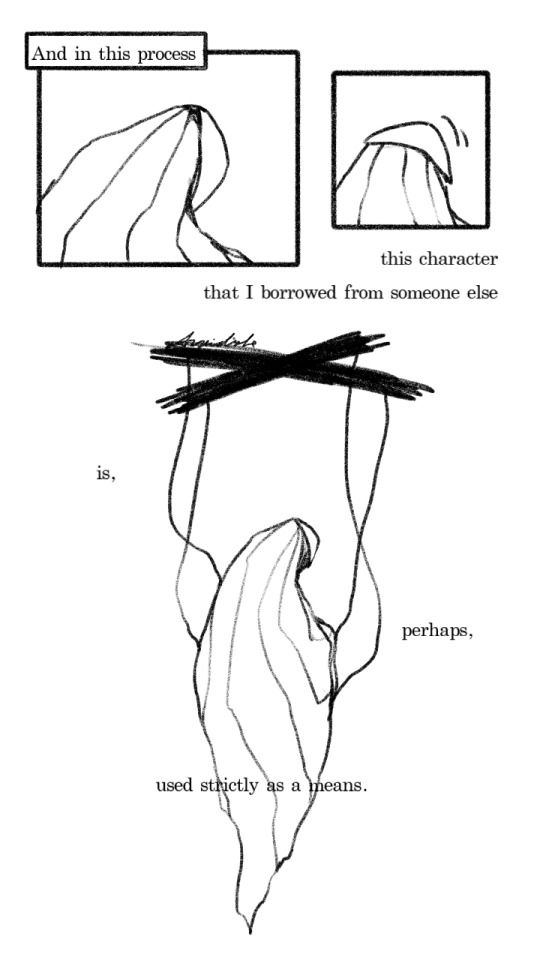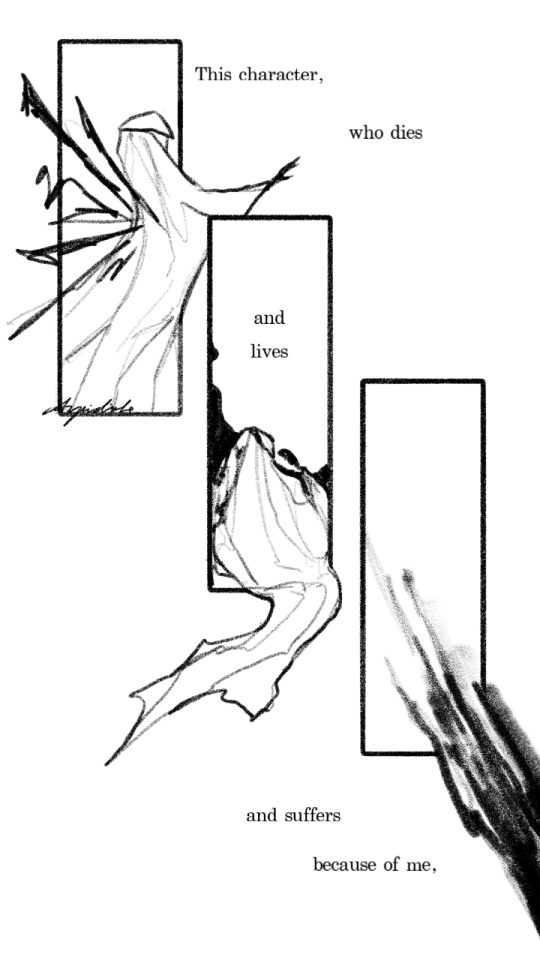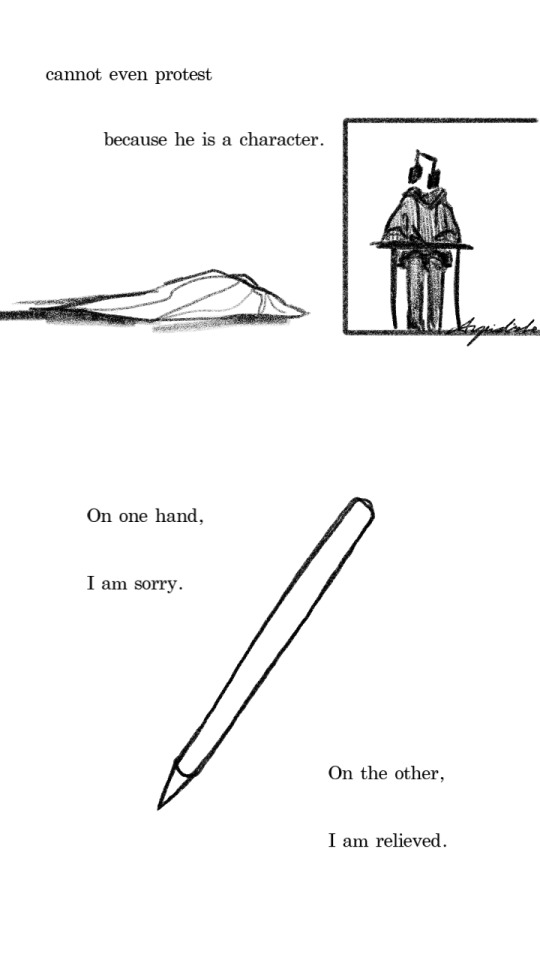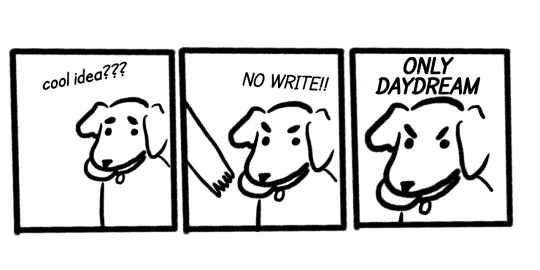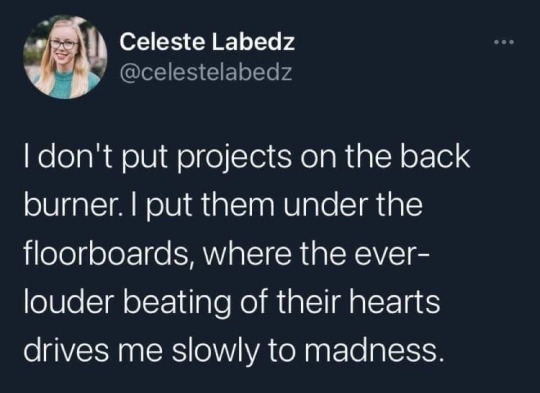Text
Could a speck of dust fry a spaceship’s mainframe? (Writing a sci fi story)
Hello! I’m writing a sci fi short story and I’d like some help in the science part of the fiction.
The story is set in the future (I purposely don’t specify how much) and is about a spaceship that is looking for extraterrestrial life, but which gets hit by a speck of dust before they find any aliens.
Basically I want the speck of dust to make it so the ship doesn’t work anymore, and have it lead very quickly to the deaths of most of the crew. I don’t really care how exactly that happens, I just like the symbolism of a single dust speck doing it.
Originally I had it that the hole it created depleted all the oxygen, but a friend of mine told me most spaceships will have partitioned rooms you can go in where the oxygen is sealed, and even if the oxygen is depleting it’ll take a long time before it depletes enough to kill anyone.
I currently have it that the dust hit the ship’s mainframe and fried all the systems, first and foremost the one creating the oxygen. The crew all went into sealed, partitioned rooms, and there was basically nothing they could do to fix the oxygen, it was just fried, and there’s a hole in that room anyways—(how big would the hole be?). The main 3 characters are in the room where their spacesuits are—(would that room be the airlock?)—so they’re able to survive a little longer after the oxygen is gone by putting on their suits.
I had my critique group read it and two of them said it didn’t make sense that a speck of dust could do that. One said it should be multiple dust particles, another said it should be a rock. But sci fi is not their forte (nor is it mine, to be fair), and I wanted to check with some science nerds before going with what they said. I’ve heard what a single dust speck can do in space, I think they’re severely underestimating the damage it could do (and even if the actual hole is small… it still hit the mainframe), and underestimating to an even greater extent what a bunch of dust particles or a rock could do. But I am no expert myself, so I wanted to ask some people who are.
From my understanding, it all depends on how fast you’re going. A speck of dust hitting a ship going at light speed would destroy the ship completely. But a micrometeor once hit the ISS and the hole was only a few millimeters across, able to be plugged by an astronaut’s finger while they grabbed supplies to fix it. I’m wanting something between total destruction and a couple millimeters and I don’t know how to believably strike that balance. Or if it hitting the mainframe and frying all the systems even works.
Can you guys help me?
Thanks!
P.S. You guys got any ideas for organization names? I was going to say the organization that sent them was SETI but I feel like it’s weird to use something that already exists? What should I call it? Also the ship’s name is in Irish so if you want to think of Irish organization names feel free!
#science#science side please explain#science side help me#science side of the internet#sci fi#science fiction#sci fi writers on tumblr#short sci fi story#sci fi short story#sci fi writers#sci fi writing#scifi#science side of tumblr
6 notes
·
View notes
Text
My only real and valid writing tip is that you google every word you make up for your fantasy stories. That’s It
178K notes
·
View notes
Text
How to write kids, if you don't remember being one or haven't lived with any
1. Kids never feel as small as you see them. A three year old thinks a one year old is a baby and a six year old is grown up. A six year old thinks a three year old is a baby and a twelve year old is an adult. Age is about perspective. One year is a huge age difference to a little kid.
2. Little kids might not be conscious of their physical limitations, but they can still be frustrated by them. A seven year old might see an adult do something relatively simple, like draw a straight line or perfectly crack an egg, and try to do the same thing, only to be frustrated when it doesn't work.
Imagine suddenly having an injury that makes a skill you use every day become difficult- you feel you should be able to do the thing, and you understand the thing should be easy for you, but it isn't. It can be immensely frustrating to have a brain that grasps a concept that language or fine motor skills haven't caught up to.
3. You know when you forget a word, and have to make something up on the fly to describe the word? That's pretty much exactly what learning your first language is like.
You know what you intend, but you don't have a way to express it, and it can move you to tears with frustration when everyone around you is suggesting the wrong thing, or seems completely certain they understand what you mean, and they don't.
You don't have a word for "Later"? You might try saying "next time", or, "after", or, "before tomorrow".
This might result in saying, "Are we going to the park next time?", "Are we going to the park before tomorrow?", or, "Are we going to the park after?", all of which can result in different answers.
4. Kids feel like adults are a different species. They don't get why we do certain things, and they don't understand why we don't want to run around with them all the time.
If sitting still is boring, coffee tastes bitter, and long conversations only happen with weird-smelling strangers who talk to them like they're stupid, then they truly will not understand why anyone would *want* to be left to have coffee with a friend without welcome distractions to make it bearable.
Aren't you bored? You aren't doing anything. How could you possibly be stimulated without any food or toys or music or anything? Why don't you just leave? Do you *have* to be there, the way you had to go to work? Adults are weird.
5. Children have complex social relationships that are just as varied as yours.
A room full of third graders might look like indiscriminate chaos to an adult, but pick a well connected kid, and they'll tell you that Megan is the fashion icon who can do hair really well, Thomas is the athlete, Gray gets mean when he has to share so nobody wants to play with him, Paisley can't read and the boys make fun of her for it so don't make her work in a group with Anthony, Dillon put a bug in their food once so they'll never trust him again, and Matthew's parents let him watch family guy so he says bad words and makes grown-up jokes that make other kids uncomfortable.
You don't see this stuff because you aren't inside the society. They are, and they do.
6. Time. Moves. So. Slow. Five minutes really does feel like half an hour. Sit still for five minutes? That's like you sitting in a waiting room at the DMV for an hour. Wouldn't you get annoyed and impatient? They haven't learned to hide their irritation yet. That's really the only difference.
7. "Reading in your head" requires understanding that you have a Voice, which people can hear, and Thoughts, which are audible only to yourself. This can be a difficult concept to grasp. If a kid is reading out loud, and you tell them to read quietly, there's a good chance they're going to whisper or mouth the words instead of going totally silent the way you might. Splitting the self into multiples like "Internal monologue VS public perception" or "What I look like VS how I think I look" is alien and bizarre. If a kid thinks they look like a Dragon and you laugh at them? Ouch. They might be mad for a while.
8. Repetitive chores make no sense when your awareness of time doesn't extend beyond a week or so. Why should I wash my blankets? They don't look dirty and I don't smell anything bad. Blankets don't get dirty unless you put dirt on them. If you put a blanket in a washer, you can't use that blanket AT ALL the ENTIRE TIME it's being cleaned. That might be an hour, but it will *feel* like a week. And you have to do that every two weeks?? That's overkill. Why even bother?
9. Kids have opinions about adults. They will have a sense about whether an adult is "real-kind" or "fake-kind". An adult who listens respectfully to what they have to say, asks thoughtful questions, and takes their concerns seriously? That's a good adult. An adult that oversimplifies their struggles, ignores their complex social rules, and gives bullshit advice like "just walk away from bullies" and "turn your chores into a fun game"? That's not a trustworthy adult. That's an Adult™. An Adult™ doesn't consider them to be a real human being with thoughts and emotions. An Adult™ sees them as an inferior, amusing pet. And they will actively sabotage An Adult™ like that.
10. Emotions are physical at a young age. Joy might make their body buzz until they can't help but wiggle or jump around. Sadness might be a huge physical pain in their throat and heart. Everything they experience is still relatively.New to.them, so there is very little frame of reference to decide if this is a "big hurt that will last forever and ever and never go away", or a "small hurt, that can be fixed easily and won't matter in five minutes". If someone lies to them about getting a cookie, that very well might be all the betrayal of your best friend sleeping with your husband.
Fortunately, a child probably won't be able to burn all your clothes in the yard without your notice.
50K notes
·
View notes
Text
Tips for Writing Healthy Romantic Relationships
Don’t base them exclusively on physical and/or sexual attraction. While these kinds of attraction can certainly strengthen relationships, they can’t create anything but a weak foundation for a relationship on their own.
Know how your characters like to show and be shown affection. Not everyone shows their interest in others the same way. Some people like to give gifts. Others like to cuddle. Still others like giving compliments. Different people like to receive different kinds of affection as well.
Remember that love at first sight is a myth. You can have lust at first sight and romantic interest at first sight, but true love takes time to develop.
Show the characters interacting and getting to know each other. This should be obvious, but it is all to common for a character to be given a love interest at the last minute or to be paired off with someone the reader hasn’t seen them interact with much. Remember, the reader doesn’t have to see every little thing they do together, but the relationship will feel forced to the reader if they don’t see the characters interacting and establishing that they genuinely care about each other in a significant way. If the reader views your character’s significant other as little more than a stranger, then you’re doing something wrong.
Have both characters do things for each other and contribute to the relationship in meaningful ways. Relationships are two way streets. While you don’t need to keep score of exactly who does what for who (Relationships are not a competitive sport!), the relationship should seem fairly balanced or, if it’s not, then the characters should be working to change that.
Don’t give your characters completely incompatible traits. While it’s healthy for people to differ from each other, there are some differences that even people that are otherwise perfect for each other probably can’t overcome. For example, a environmental activist would have a hard time having a healthy relationship with someone who wants to chop dow a forest. Basically, know your characters’ deal breakers so that you won’t try to match up characters who are simply incompatible with each other.
Have them share interests. This is a great way to add substance to relationships outside of physical attraction and compatible personalities. Maybe they both like fishing. Maybe they share a passion for baking. Whatever you decide to have them like, don’t be afraid to use your characters’ shared interests as opportunities for them to bond. Also, if your characters don’t share a lot of interests/hobbies, consider having one character introduce the other to their hobby or have one character take initiative to try something the other likes. This is a great way to show how much your characters care about each other because it demonstrates your characters’ genuine interest in what makes their partner happy.
Let the relationship experience at least a few bumps in the road. No relationships are perfect. Let your characters disagree, argue, and maybe even have a full on fight. Relationships that withstand obstacles seem stronger to readers, especially if the characters grow as people because of these hardships.
11K notes
·
View notes
Text
Quick editing tip: Passing time
Hey all, here’s a quick tip about showing the passage of short amounts of time in a scene. I see a lot of beats like this:
She hesitated
He paused
A few seconds later
There was a long silence
He waited for her to answer
She didn’t respond
Instead of telling us there’s a brief moment of silence or pause in your scene, try showing us by creating the feeling that time has passed through action, description, or inner monologue. Here are a few examples.
Before:
“Are you coming or not?”
He waited for her to answer, but she didn’t respond.
“Clare? Did you hear me?”
“Huh?”
After:
“Are you coming or not?”
Clare scrolled through her phone, her face illuminating with a eerie blue glow.
“Clare? Did you hear me?”
“Huh?”
Before:
Jared lingered at the suspect’s front gate. If this guy didn’t answer Jared’s questions, he was screwed.
“Hey you!” a voice shouted. “Get off my property!”
Jared hesitated. Finally, he turned to face the man. “I’m afraid I can’t do that.”
After:
Jared lingered at the suspect’s front gate. If this guy didn’t answer Jared’s questions, he was screwed.
“Hey you!” a voice shouted. “Get off my property!”
Jared patted his holster. He had a gun, but he certainly didn’t want to use it. Taking a deep breath, he turned to face the man. “I’m afraid I can’t do that.”
Not only does creating a pause instead of describing a pause allow your reader to feel the moment more vividly, it gives you a chance to explain what exactly that pause is about. People hesitate, pause, don’t respond, etc. for all kinds of reasons. Give us as much insight as you can into your weird quiet moment.
Of course, you don’t need to do this every single time. Sometimes it’s fine to say “he paused” or “the room was quiet for a moment”—it could be the best choice for that scene. But look back through your draft and see if you’ve used those “telling” descriptions more often than you needed to. If so, try to create the feeling of a pause—perhaps one that gives the reader a bit more information—using these techniques.
Hope this helps!
13K notes
·
View notes
Text
“I still encourage anyone who feels at all compelled to write to do so. I just try to warn people who hope to get published that publication is not all that it is cracked up to be. But writing is. Writing has so much to give, so much to teach, so many surprises.”
— Anne Lamott
350 notes
·
View notes
Text
Pro-writing tip: if your story doesn't need a number, don't put a fucking number in it.
Nothing, I mean nothing, activates reader pedantry like a number.
I have seen it a thousand times in writing workshops. People just can't resist nitpicking a number. For example, "This scifi story takes place 200 years in the future and they have faster than light travel because it's plot convenient," will immediately drag every armchair scientist out of the woodwork to say why there's no way that technology would exist in only 200 years.
Dates, ages, math, spans of time, I don't know what it is but the second a specific number shows up, your reader is thinking, and they're thinking critically but it's about whether that information is correct. They are now doing the math and have gone off drawing conclusions and getting distracted from your story or worse, putting it down entirely because umm, that sword could not have existed in that Medieval year, or this character couldn't be this old because it means they were an infant when this other story event happened that they're supposed to know about, or these two events now overlap in the timeline, or... etc etc etc.
Unless you are 1000% certain that a specific number is adding to your narrative, and you know rock-solid, backwards and forwards that the information attached to that number is correct and consistent throughout the entire story, do yourself a favor, and don't bring that evil down upon your head.
82K notes
·
View notes
Text
THIS
what people think is hard about writing: describing the joy, love, beauty, grief, loss and hope that form the richness of human experience
what is actually hard about writing: describing basic actions such as turning, leaning over, reclining, gesturing, saying something in a quiet voice, breathing, getting up from chairs, and walking across rooms
146K notes
·
View notes
Text
"i could fix him" "i could make him worse" well i could make him. hi, victor frankenstein here,
37K notes
·
View notes
Photo

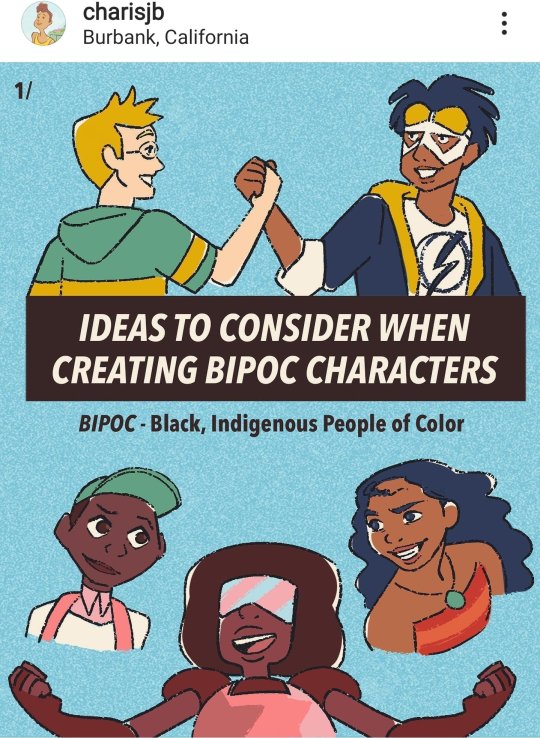
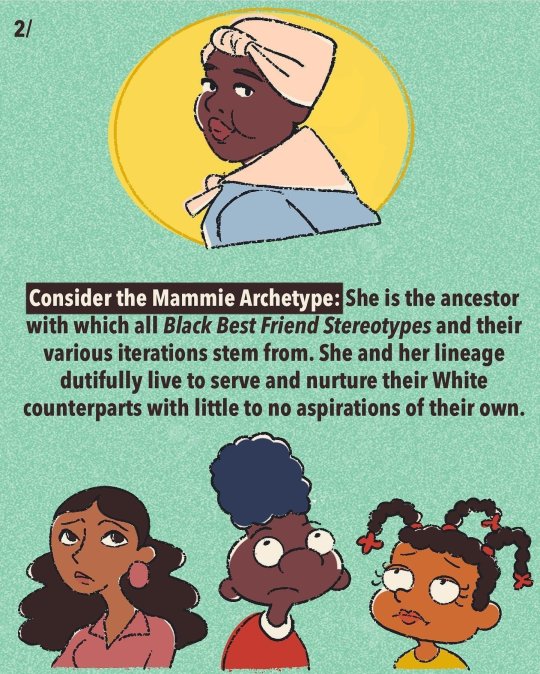
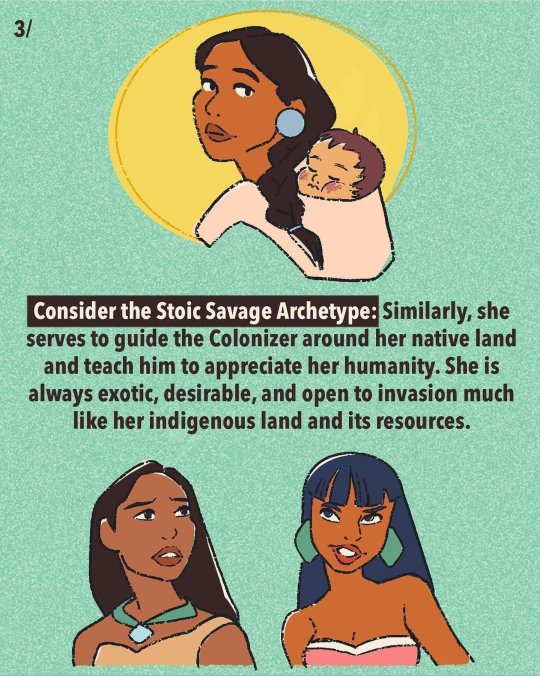
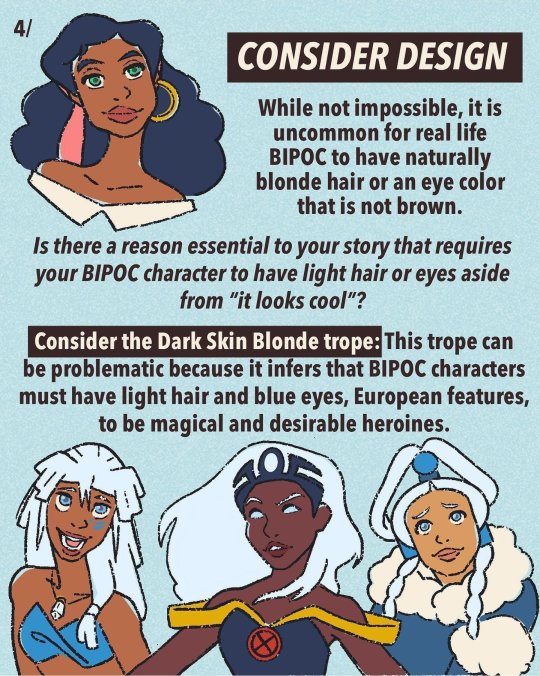
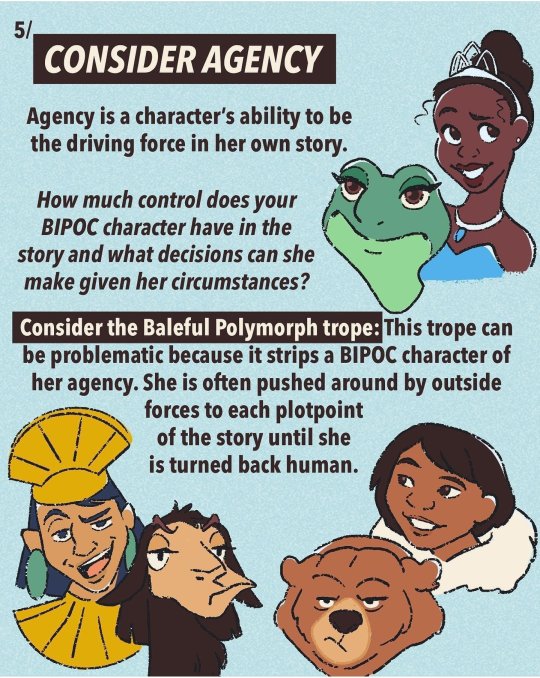

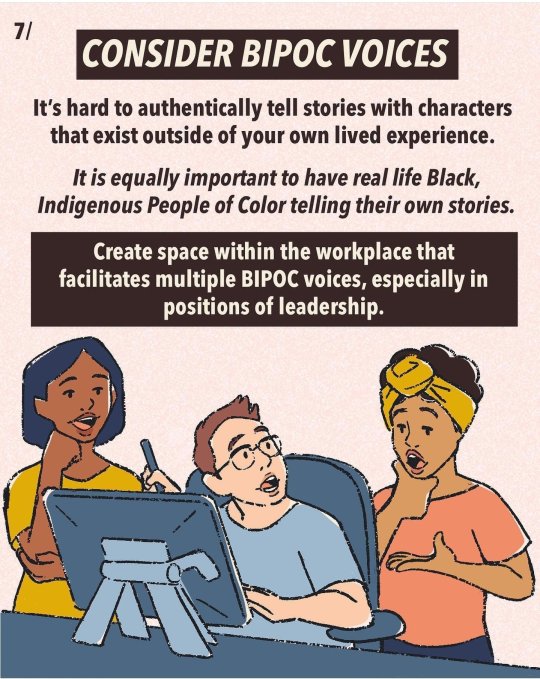
Important ideas to consider when creating characters who are black and indigenous people of color. (x)
163K notes
·
View notes
Text
"EPITHETS!" yelled the short, grumpy, red-eyed cancer.
the lesson for today, class, is when to use epithets rather than names or pronouns — and when not to.
USE EPITHETS:
- when the character’s name is unknown, so there’s really no other way to refer to them:
Two goons in suits blocked my way. “You ain’t going nowhere,” said the ugly mook. The even-uglier mook just grinned.
- to draw attention to the role or function described:
Bill was so excited to meet Obama, he was a little worried he’d end up remembering today as the day he threw up on the president.
- as in-character commentary to flesh out the POV’s voice:
You stand back and nudge the door open with your toe in case of falling buckets, but it seems the windy dipshit has given up on that particular tired prank.
(NOTE: use this last one SPARINGLY. consider your own internal monologue. how often do you think of people by anything but their names? too much of this trick breaks immersion.)
DO NOT USE EPITHETS:
- to avoid using pronouns.
- to avoid using names.
- to remind the reader of physical characteristics you should’ve described elsewhere.
- to remind the reader of physical characteristics they already know perfectly well because they wouldn’t even be reading your damn fanfic if they weren’t familiar with canon, come ON people.
- to try to sound erudite or poetic.
- for any other stupid reason. i’m serious. i will come over there and hit you.
- i’m not kidding.
- fucking stop.
10K notes
·
View notes
Text
HEY, Romance Writers!
A few followers have asked for tips on writing romance into their stories or as the basis of their stories. Here’s a masterlist of sources (below cut) that may help.
General Romance:
What Defines Romantic Love?
How to Build a Romance Thread in Your Story
How to Plot a Romance Novel
Slowburn Romance
When Friends Fall for Each Other (ask)
Tips for Writing a Character Who Has a Crush
Tips on Writing Unrequited Love
Writing Healthy Couples in Fiction
An Antidote to “Love at First Sight”
How Attractive Should Your Characters Be?
3 Great Ways to Show That Your Character Is In Love
6 Ways to Get Your Readers Shipping Like Crazy
Six Steps to Stronger Character Arcs in Romances
Seven Great Sources of Conflict for Romances
9 Romance Writing Mistakes to Avoid
20 Tips for Writing Lovable Romance Novel Heroes
How to Write a Kissing Scene in a Romance Novel
Types of Kisses and Kissing + This Post Is All About Kisses
List of Ideas to Keep Romantic Tension High
100 Questions for Character Couples
How Do I Make the Relationship Development Realistic?
How Do I Know If Two People Are Compatible?
Healthy Relationships Can Include Teasing
How to Write a YA Romance Without Cliché
Intercultural Romance:
How do I write an interracial couple accurately? (ask)
15 Common Stereotypes About Intercultural Relationships
Cross Cultural Relationships
[Ideas for] Your [Fictional] Cross-Cultural Relationship
Things to Avoid When Writing Interracial Romance
writingwithcolor: Interracial Relationships (w/ links)
Bad Romance:
Removing the Creeps From Romance
Why The Surprise Kiss Must Go
Possessiveness 101
10 Signs You May Be in an Emotionally Abusive Relationship
Edward & Bella Are In An Abusive Relationship
Red Flags, Verbal Abuse, Stalking… | Script Shrink
5 Huge Mistakes Ruining the Romantic Relationships in Your Book
How do you write a [bad] relationship without romanticising it? (ask)
General Tips for Writing Characters Love Interests:
How to Write from a Guy’s POV
Writing Awesome Male Characters: What You’re Doing Wrong
7 Point-of-View Basics Every Writer Should Know
How Do You Describe a Character?
4 Ways to Make Readers Instantly Loathe Your Character Descriptions
3 Signs Your Story’s Characters Are Too Perfect
Is a Quirk Just What Your Character Needs?
Six Types of Character Flaws
Is Your Character Optimistic Or Pessimistic?
5 Ways to Keep Characters Consistent
9 Simple and Powerful Ways to Write Body Language
10 Body Language Tricks for Deeper Characterization
Describing People Part Three: Gestures, Expressions, and Mannerisms
33 Ways To Write Stronger Characters
Conveying Character Emotion
Distinguishing Characters in Dialogue
How to Make Readers Love an Unlikable Character…
Characters: Likability Is Overrated
Relationships in General:
How to Create Powerful Character Combos
8 Secrets To Writing Strong Character Relationships
Character Relationships: 6 Tips for Crafting Real Connections
Writing Relationships: Hate to Love
Stereotypes, Archetypes, & Tropes:
Five Signs Your Story Is Sexist: Part 1, Part 2
Five Signs Your Story Is Sexist – Against Men
Always Female vs Always Male
Born Sexy Yesterday & Manic Pixie Dream Girl
7 (Overused) Female Love Interests
Other Resource Lists
Resources For Romance Writers
Pinterest Board “Writing: Romance Arcs and Plots”
thewritershelpers FAQ (romance, kissing, sexuality, etc)
+ Follow HEY, Writers! on Ko-Fi // Wattpad // AO3 // Goodreads // Pinterest
#writeblr#nanowrimo#writing#writing tips#authorblr#romance writing#writblr#writing advice#writing help#romance
19K notes
·
View notes
Text
Okay world
Give me some short story prompts
…Please?
*Sighs* I’ve been wanting to get into writing short stories to send to magazines to publish for a while. I have multiple started but it seems I can never…finish.
I’ll have an idea that I love and think is great and worth publishing, it’ll start out strong and I’ll like what I’ve got…
…and then I’ll end up at a total loss for something in the middle.
I’ll write the beginning, and I’ll know how I want it to end, but how to get there will get lost in something silly I just can’t figure out. I’ll know the what, the why, and the where, but never the how.
So I’m wondering if perhaps I get other people’s ideas, instead of my own, that might help? I dunno, I’m willing to try anything.
So what am I looking for?
Prompts. Highly specific prompts. That are conducive to short stories.
As i said, I get stuck on how, so the more “how” you can give me, the better. Im not asking you to write the story for me. But “write a retelling of the 12 dancing princesses” might not get me anywhere. And “write a retelling of the 12 dancing princesses where the princesses are all robots the king created. He knows what they’re getting up to, he just wants someone to shut them down” + more would be more likely to get me somewhere.
But make sure they’re conducive to short stories. (Part of my problem is I blow things out of proportion and make them into novel premises instead.)
Oh! And I like fantasy, sci fi, and some horror best!!
2. Just generally let me know what kinds of fictional stories you’d like to see more of in the world
What I mean by this is things like “I’d like to see more Latino characters in fiction.” Even better if you can let me know some specific stories or scenes you’d like to see Latino characters portrayed within.
Or “I’d like to see more Chinese legends made into modern stories.” And then maybe some of your favorite legends.
This can be anything you want. (It can simply be something like “I want to see more dragons.”) Even though this isn’t a specific prompt, it can give me something to work with
3. Advice on the specific problem I’m having
I’ve tried to look up advice before and it’s too generic to help me. (Ie “outline your story!” I know what I want the plot to be, there’s a gap in the middle where the beginning connects to the end that I can’t figure out. You can’t outline a plot point you don’t have/that is vague). If you have any advice very specific to this problem I’d love to hear it
As well as advice on publishing in magazines
You can send these anywhere you want, dms, asks, reblogs/replies to this post!!
Please note!!
If you send me a prompt, these aren’t things I intend to post here. Like I said, I want to write short stories for magazines, and magazines are very particular about first publishing rights. If you leave your url, I’ll likely chat with you about your idea, or at least, if I do submit it and it gets accepted, I’ll be sure to let you know and try to make sure you can read it!!
Anywho. Bottom line, if you’ve got prompts/ideas I can use, please send them over!!
#short stories#writeblr#writblr#original writing#writing#writer#writers on tumblr#writers#writing prompts#short story writing#writing prompt#creative writing#writing ideas#writng#write#writings
0 notes
